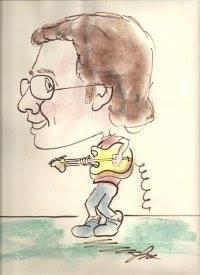Richard Cupich:
CLASS OF 1966

Archbishop Ryan High SchoolClass of 1966
Omaha, NE
Richard's Story
Richard is married. His schools include Archbishop Ryan High School. He works(ed) at University of Nebraska-Omaha.
Richard's interests include Playing Acoustic Guitar. Music he likes includes Simon & Garfunkel. Books he likes include Biographies. Movies he likes include Casablanca, Casablanca.
One of Richard's favorite quotes is:"Consuetudinis magna vis est. (The power of habit is great.--Cicero)".
More about Richard:"When I was young, I often helped my father prepare his garden in the spring. It was a hobby he learned from his parents, immigrants from the farming areas of Croatia, who emigrated shortly after the turn of the twentieth century. My father was particularly interested in his tomato plants. He would always talk to me as we worked together to embed the seedlings in an orderly fashion into the soil. He would remind me to dig deep enough for it to take root, to supply it with sufficient water, and give it enough space and time to produce the fruit. As the plants grew taller in the course of the summer, he saw to it that each stalk needed sturdy stakes to support the center stem now holding the still green fruits. "That way," he added, "along with enough watering, and weeding, we’ll have ripe, red tomatoes.”
I also remember a neighbor, Mr. Charvat, religiously tending his garden. It was not unusual for him to talk to me or any of my siblings, while he worked in his small plot of land and we played on the other side of the fence in our yard. One afternoon, as our neighbor was turning the soil with his pitchfork, he asked my brother Blase and me, "Do you know why a cow is better than you?" When we shook our heads, he replied, “A cow gives milk; you give nothing.” I don’t remember much after that. We probably watched our neighbor for a while and scratched our heads, not understanding what he meant.
I often think of my father and Mr. Charvat when I teach. As an instructor of English, German and Latin, I have come to learn from the latter discipline that the word education has its roots in educĕre, meaning to rear a child, to lead one out, or figuratively to raise up a person. Similar to gardening, education involves a natural process of nurturing, by leading a student from unknowing to knowing. Like plants in my father’s small plot, the minds of...Expand for more
students need to be cultivated, in a way where they can raise themselves out of the fertile environment of their classrooms. For example, when teaching in my certified disciplines, I must prepare the ground for students to learn to think for themselves. I often think of my encounter that one day with Mr. Charvat. In fact, at the beginning of each year I relate the story to my students; yet, I focus on my reactions as a boy, as well as on my neighbor’s words. I stress to my students at this time the importance of staying critical and analytical, always questioning, scratching one’s mind in searching for answers.
If I may speak for my colleagues, the real fruits of our labors, however, emerge in two ways. We continually learn as we teach. Moreover, we feed on our own fruits of knowledge, being creative in our delivery of the information we impart, whether it be in reading Chaucer’s works, Vergil’s Aeneid, the poem of a medieval German minnesänger in a fresh way every time we read it, or reviewing time-tempered methods of teaching the Socratic method of an argumentative essay. Secondly, students reach a stage where they are mature enough in learning to be creative themselves. This is where genuine learning takes place. The German student, who has followed the rigorous rules of the language, suddenly finds he/she can communicate spontaneously, naturally, to another, in the target language. A student of English literature, who has also studied Latin and translated a story in Ovid’s Metamorphoses, suddenly understands how the arbitrary nature of love in Cupid resurfaces in Chaucer’s “Troilus and Criseyde.” Finally, the English Composition student, after employing the tools of carefully organized and recursive writing, finds that his/her essay has been nominated for a special award or has been accepted by a major publication.
We, as academic gardeners, whether at home or abroad, may not often see the final fruits of our labors with our students; we can only hope to have passed on to them our tools of learning. We can only trust that they have learned to weed and water with knowledge and to scratch their analytical minds, so they can eventually raise themselves up and lead themselves out into any community to produce fruitfully as educated citizens.".
Register for Free to view all details!
Yearbooks
Register for Free to view all yearbooks!
Reunions
Photos





